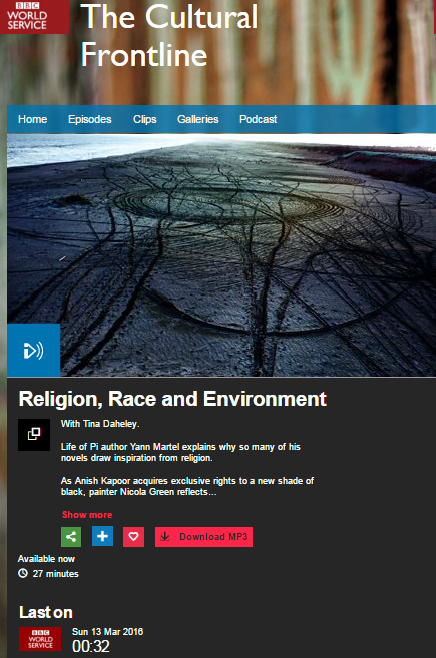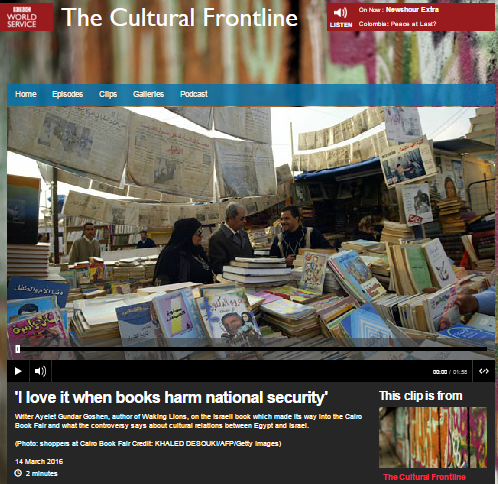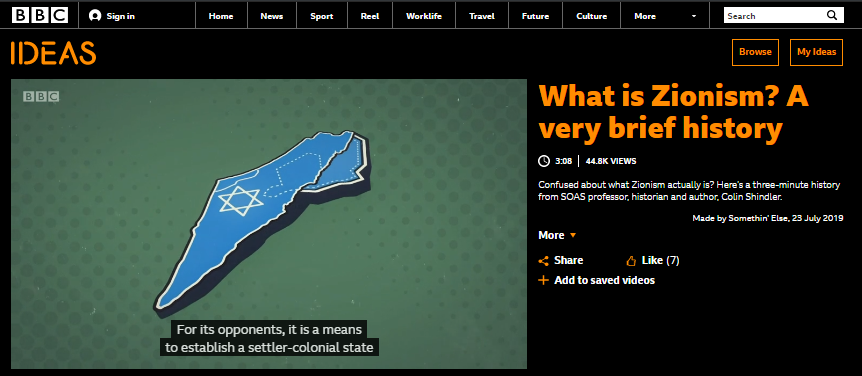Between December 31st 2015 and February 22nd 2016, assorted BBC platforms produced five separate reports or programmes which falsely described a certain book as having been ‘banned’ by the Israeli government.
On March 13th inaccurate information concerning that book – Dorit Rabinyan’s novel ‘Borderlife’ – was once again promoted in an item appearing in the BBC World Service radio programme ‘The Cultural Frontline’.
The item (from 14:33 here and with an abridged version promoted separately on social media) was introduced by presenter Tina Daheley as follows:
“Our next stop this week is Egypt and a new development in the country’s historically difficult relationship with neighbouring Israel. The improving diplomatic situation between the two countries was challenged last week when the Egyptian MP Tawfik Okasha was voted out of parliament by his colleagues for inviting the Israeli ambassador to dinner at his house. Apparently the problem was that his invitation normalised relations with Israel.”
Listeners would have little idea of what that story is about because the BBC did not cover it at the time. The introduction continued:
“And these frosty relations aren’t confined to the political sphere, as the Israeli novelist Ayelet Gundar-Goshen – author of ‘Waking Lions’; a novel which looks at integration within Israeli society – explains.”
Gundar-Goshen’s account concerns a controversy which arose last month when an Arabic language version of a book by an Israeli journalist was discovered at the Cairo International Book Fair. Despite having told listeners that among the books available in Egyptian book stores are ‘Mein Kampf’ and the antisemitic forgery ‘Protocols of the Elders of Zion’, Gundar-Goshen nevertheless claimed that the Egyptian cultural scene “refuses any normalisation with the Israeli state due to the Israeli occupation of Palestine”.
Having mocked the Egyptian authorities’ reaction to the discovery of the Israeli journalist’s book at the Cairo Book Fair, she then went on to state:
“Only a month ago I heard the same music from Israeli politicians after the Israeli minister of education decided to ban from school curriculum an Israeli novel about an Israeli-Palestinian love affair. Now it’s our neighbours from the south who is banning Israeli books. The Right-wing government in Israel isn’t so different from the Egyptian politicians: both afraid of the power of the written word.”
The book ‘Borderlife’ was not ‘banned’ from the school curriculum: it was not included in a list of books upon which high school students will be examined for their GCSE equivalent certificate in literature.
The BBC’s repeated misrepresentation of Dorit Rabinyan’s book as having been ‘banned’ is by now far too recurrent to be excused as a mere error. That falsehood has been serially promoted over the last two and a half months, with BBC audiences being repeatedly herded towards the inaccurate and politically motivated narrative of a dark Israeli regime which bans books on ideological grounds.
Related Articles:
BBC World Service conflates fact and fiction in promotion of ‘racist’ Israel
BBC World Service ‘Newshour’ reports a ‘book ban’ that does not exist
How many inaccuracies can the BBC cram into a 23 word sentence?
BBC World Service continues to promote the fiction of an Israeli ‘book ban’
How an uncorrected inaccuracy became BBC conventional wisdom




